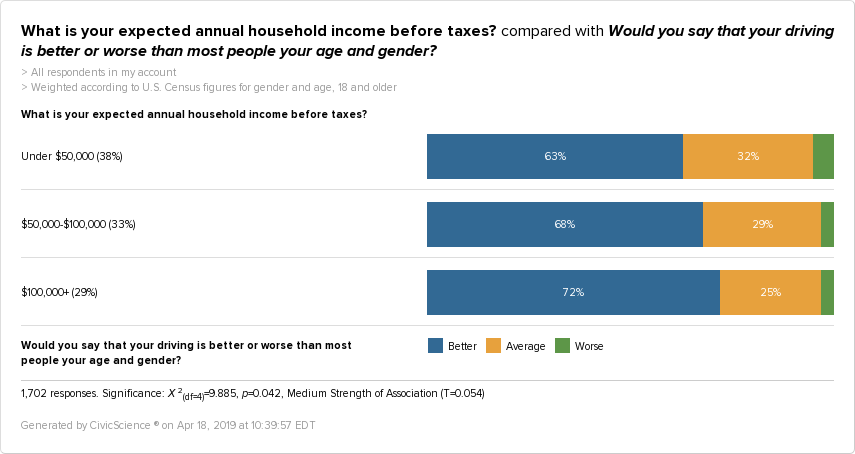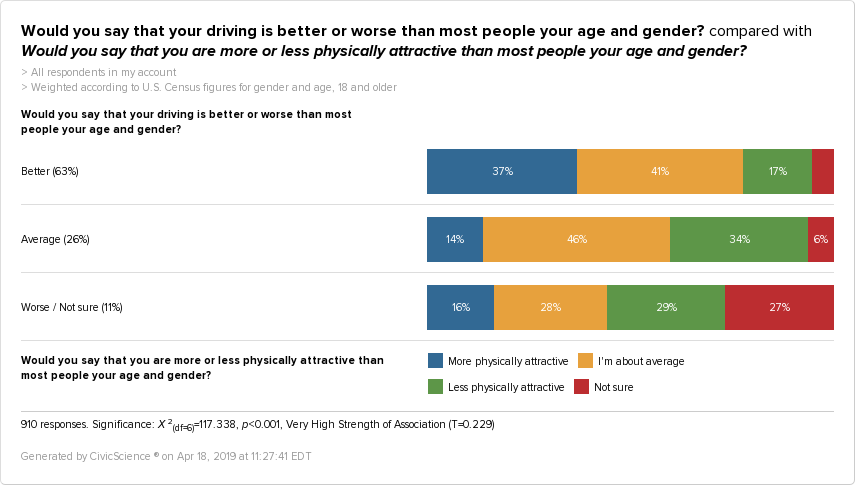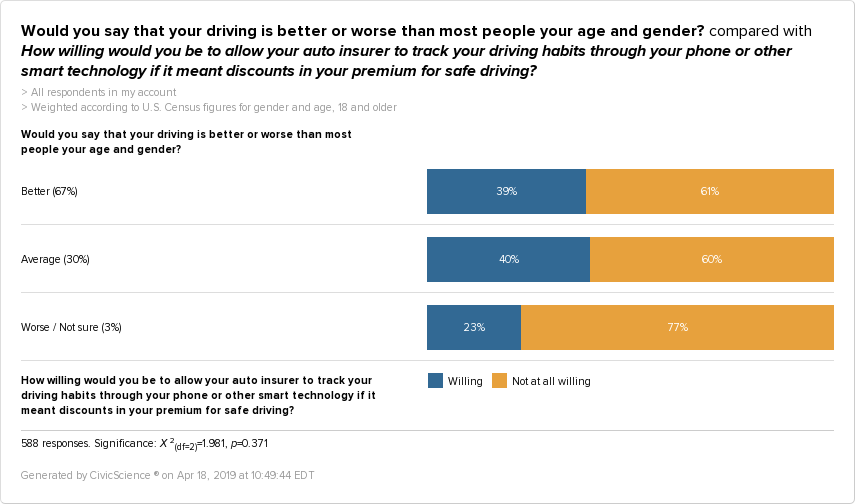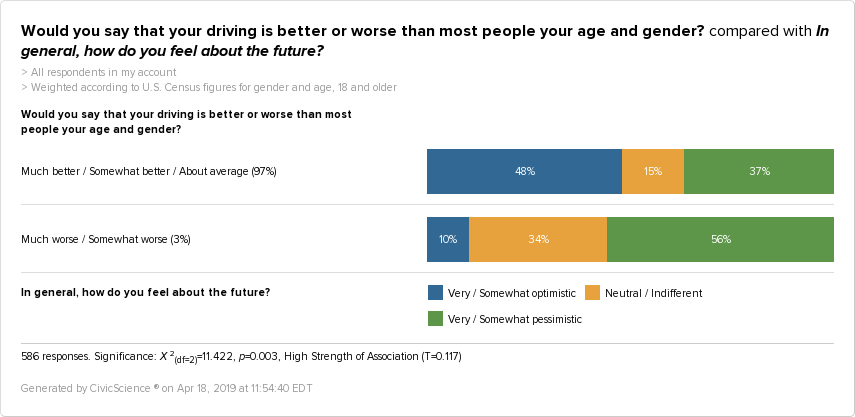For U.S. adults, car ownership is a big deal. And, unsurprisingly, drivers tend to be rather opinionated when it comes to a self-perceived notion of how they drive. CivicScience asked more than 2,000 U.S. adults about their driving behavior, to better understand how self-perceived good driving impacts other areas of life–if it does at all.
The results show that most people think they are “good drivers” (63%) compared with others of the same age and gender. No shocker here: hardly anyone believes their driving is much worse than their peers’.
42% of men believe their driving is much better, as opposed to 33% of women in the same category. Women are, in fact, more likely than men to rate their driving as about average.
Our data show that people who are older and wealthier tend to think of themselves as good drivers. Higher income earners ($50K – $100K+) have the highest opinion of their driving skills.
This boost in perspective may also be related to the type of car that one chooses to drive. Convertible and truck drivers are most likely to be “good drivers,” which poses the question: do those who believe their driving is better also have a higher opinion of their attractiveness?
The short answer is yes.
Good Driving and Insurance
Both “good” and “average” drivers are also the most willing to use a driving tracker to receive discounts on car insurance premiums. But do note that the bigger story here is over half of good drivers are still not interested in a service to reward said driving. This backs up an earlier report, where it became clear that the majority of U.S. adults were not interested in having their insurance company track their driving behavior, regardless of the monetary incentive.
“Good drivers” spend roughly the same amount of time in their cars as modest drivers, suggesting that this level of self-perception has less to do with experience and more to do with personal opinion. The data support this, revealing “good” and even “average” drivers are more optimistic about the future than “bad” ones. It may only be a marginal difference, but it could help put the numbers into perspective, even if that perspective is somewhat rose-colored.
As it turns out, how someone believes their driving compares to that of their peers may have a very real connection to other elements of self-perception. This could, in turn, impact more tangible fiscal choices, such as car type or innovative insurance discounts. But it certainly shows that, overall, the majority of people don’t want to be tracked by their insurance company, good driver or not.













